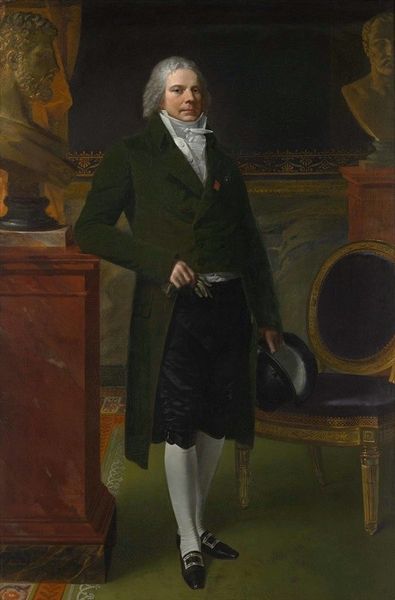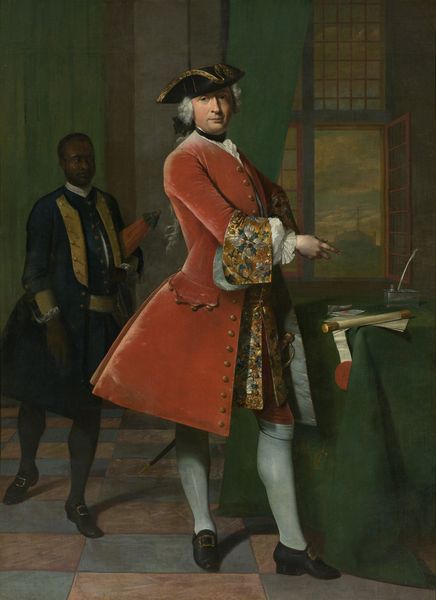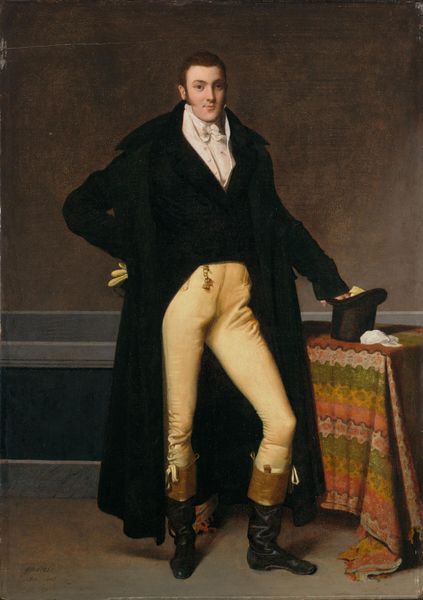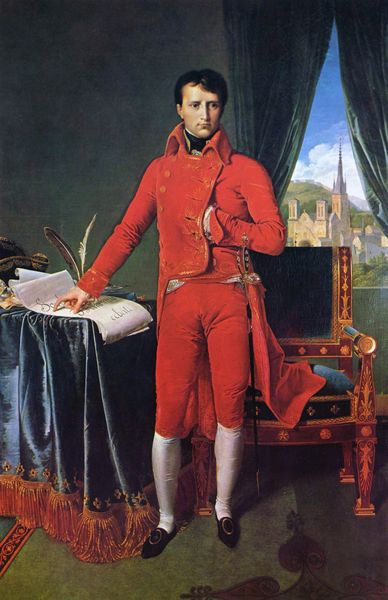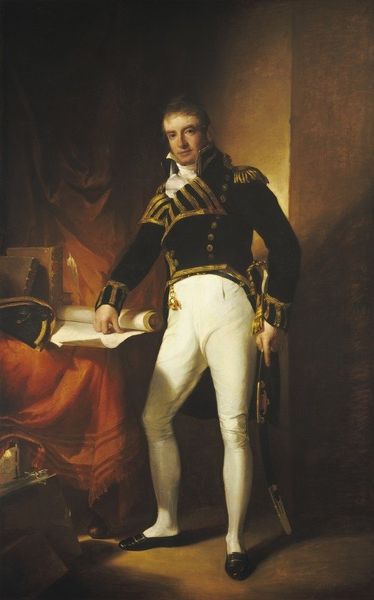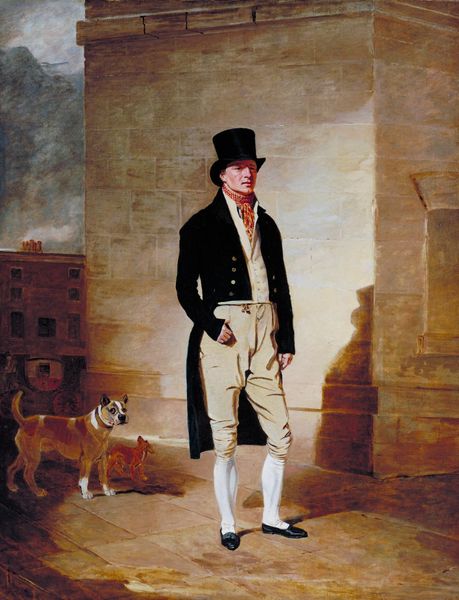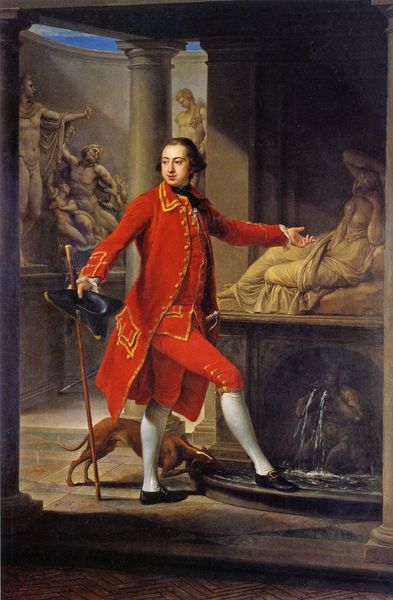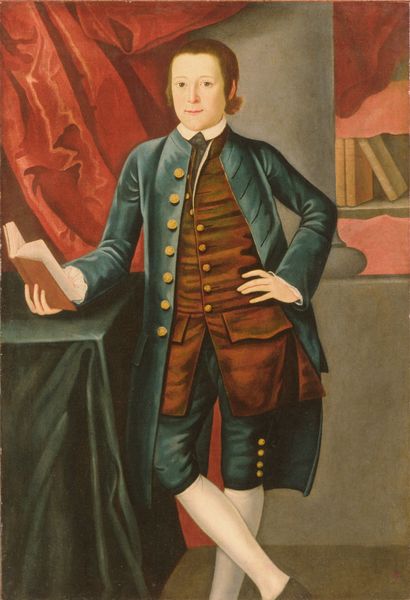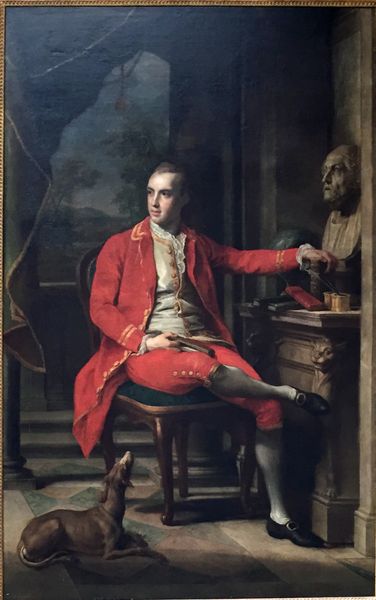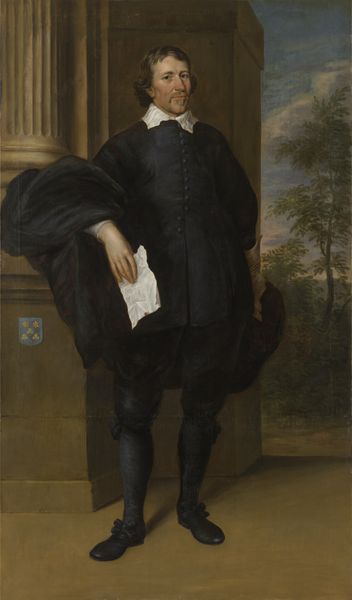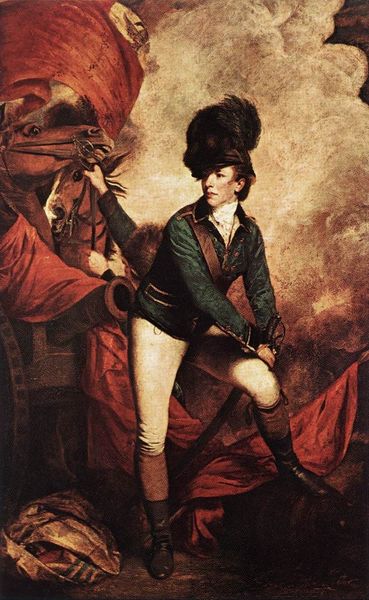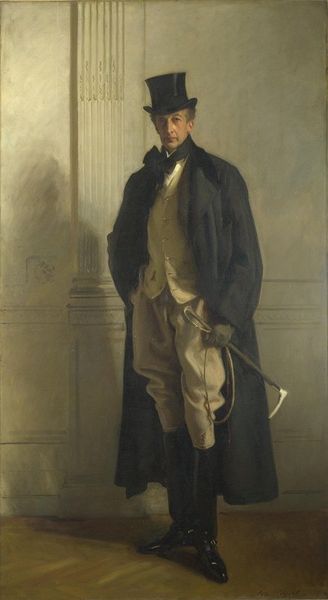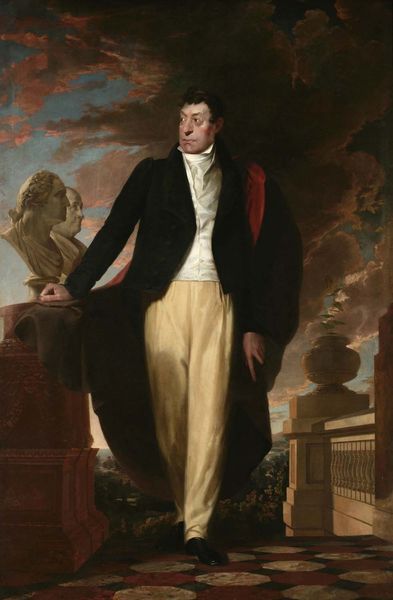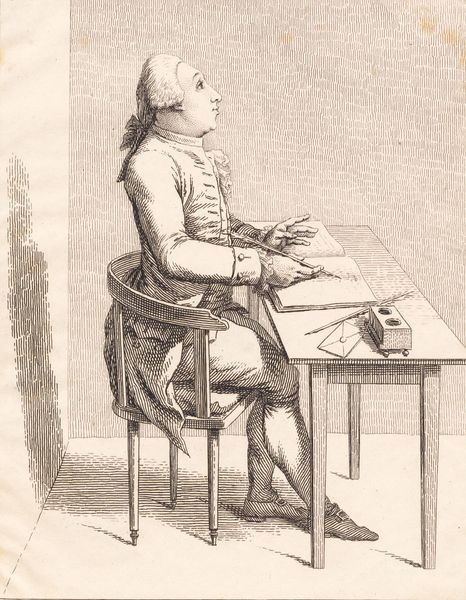
painting, oil-paint
#
portrait
#
neoclacissism
#
painting
#
oil-paint
#
genre-painting
#
academic-art
Copyright: Public domain
Ralph Earl painted this portrait of Elijah Boardman, a wealthy merchant, sometime around the 1780s or 90s in Connecticut. Boardman is posed in his study, surrounded by symbols of his success: expensive clothing, a well-stocked bookshelf, and bolts of imported cloth. These details speak volumes about the social and economic landscape of the early American republic. Boardman's wealth derived from international trade, connecting him to global networks of commerce. The books suggest his intellectual pursuits and social standing, while the imported cloth hints at the consumer culture taking root in America. Earl's portrait subtly reflects the emerging class structure and economic aspirations of the time. To fully understand this painting, it is important to research the history of trade, consumerism, and portraiture in early America. By exploring these social and institutional contexts, we gain a richer understanding of the painting's meaning and its significance as a reflection of its time.
Comments
No comments
Be the first to comment and join the conversation on the ultimate creative platform.
